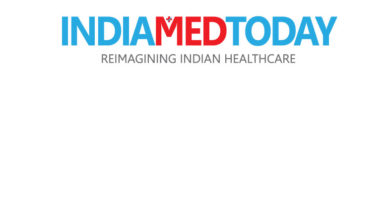Experts discuss AMR’s significant challenge to the Indian health system: Experts

Discussions were held on misuse of antibiotics
Antimicrobial resistance (AMR) poses an immediate and widespread threat to global public health, primarily fuelled by the indiscriminate use of antimicrobials in human, animal, and plant health domains. Experts at Amrita Hospital and Amrita School of Biotechnology expressed apprehension about the persistent and significant impact of antimicrobial resistance on the healthcare landscape in India. To effectively address this global issue, they recommended a strategic approach aimed at reducing the reliance on and usage of antimicrobial drugs, thereby mitigating the impact of AMR.
“The misuse of antibiotics leads to bacterial resistance, while the pharmaceutical industry’s lack of focus on new antibiotics complicates the problem. In 2021, India alone reported 100,000 cases of antibiotic-resistant organisms. These cases are spanned across various bacterial infections, indicating widespread resistance. It is crucial to find a delicate balance in antibiotic dosages, acknowledging that overuse contributes to resistance. As we navigate these challenges, collective global efforts, innovative research, and responsible antibiotic stewardship are our best tools in preserving the efficacy of antibiotics and safeguarding the health of present and future generations,” added Dr Bipin Nair Kumar, Dean & HOD, School of Biotechnology, Amrita University.
Dr Ranga Reddy, President, Infection Control Academy of India said, “AMR poses a threat to various aspects of life, undermining the 2030 Sustainable Development Goals, especially in regions with inadequate sanitation. Sectors like agriculture and poultry significantly contribute to antimicrobial resistance (AMR). Recognizing persistent or worsening infections despite antibiotic treatment is crucial, as a lack of response may indicate AMR. Vigilance and appropriate treatment are essential, considering risk factors such as excessive antibiotic use, hospitalisation, and chronic conditions. Treatment options are limited and require tailored antibiotic therapy based on susceptibility testing. The concept of healthy ageing can be adopted by staying healthy and by vaccinating against communicable diseases.”
Dr Dipu TS, Associate Professor, Division of Infectious Diseases, Department of Internal Medicine, said, “Antibiotics, though are facing abuse of use now, have historical significance as they initially saved lives during World War II. However, overuse and misuse have led to a decline in the antibiotic pipeline, with pharmaceuticals showing reluctance to invest in new antibiotics. Hospitals should take a lead role in prescribing accurate antibiotic dosages, preventing cross-patient infections and implementing stewardship for effective management. Hospitals should implement accurate antibiotic prescribing, establish antimicrobial stewardship programs, improve the appropriateness of the prescriptions and focus on infection control practices to prevent the spread of infections from one person to another. Individuals can safeguard against AMR by following prescribed antibiotic courses, avoiding self-medication, and maintaining good hygiene practices.”
“Integrating the One Health concept into discussions on antimicrobial resistance (AMR) is pivotal, acknowledging the interconnectedness of human, animal, and environmental health. Various campaigns, such as the Blue Light campaign and WAAW campaign, are integral parts of AMR week, emphasising the importance of awareness in addressing this global issue. Healthcare professionals play a key role by educating patients on antibiotic use, implementing stewardship programs, and advocating for policies supporting AMR control. Key practices include rational antibiotic prescribing, infection control measures, public education on antibiotic use, and improving sanitation and hygiene. Strengthening surveillance systems, promoting antibiotic stewardship, investing in new antibiotic development, and fostering global collaboration are essential strategies, highlighting the necessity of centralized policies to curb antibiotic misuse and abuse across sectors,” said Dr R Krishna Kumar, HOD, Pediatric Cardiology, Amrita Hospital, Kochi.
Amrita organised a three-day international colloquium, Amrita Legion of Antimicrobial Resistance Management (ALARM) 2023 recently. In alignment with the World Health Organization’s World Antimicrobial Awareness Week, the event addressed the urgency of creating awareness and collaborative efforts to combat this growing medical challenge. ALARM 2023 provided a dynamic platform that transcended traditional conference settings. Multidisciplinary panels engaged experts from various fields, fostering in-depth discussions on the social, economic, and health implications of AMR. Specialised policy roundtables offered a space for policymakers to share strategies, integrating AMR considerations into broader health and economic policies.

